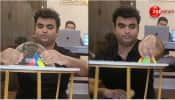Panaji: Scores of temples destroyed by the proselytizing 15th century Portuguese colonials were not Hindu places of worship but belonged to different "independent cults and religions which were often at war with each other", a leading theologist with the Goa Church has said.
Father Victor Ferrao, a dean at the Roman Catholic seminary which trains young priests, also said in his paper presented at a recent seminar "The Challenge to be a Goan Christian" held here, that by painting pre-colonial Goa as Hindu territory, "there is a direct attempt to turn the historical facts about conversion against the Church and the Christians of today".
"This political motive of appropriating Goan history is highly reductionist and distortionist in its approach. I have described these attempts as Hindu-ology. In fact even the word Hindu does not exist in the entire sixteenth century Indo-Portuguese historiography," says his paper, titled "The Other Orientalism and the Challenge and Opportunities for the Church in Goa".
The issue of Goa`s religious past before the advent of spices and Christian-seeking Portuguese has been a matter of debate in recent times.
A large section of authors and historians have insisted that Goa has been described in ancient texts as a land reclaimed by Sage Parshurama, an avatar of Lord Vishnu, from the sea and that the state, now known for beaches, tourism, nightlife and drugs, was once called Konkan Kashi or the Benaras of the Konkan.
This view was endorsed by the Vishwa Hindu Parishad, which during a conclave held here in 2000, released a six-page brochure on the subject.
"Goa, even four decades after liberation, is misguidedly projected as the Rome of the East, particularly in tourism - by government and non-government agencies. But Goa is the Kashi of the west coast India... The Portuguese are not the makers but destroyers of Golden Goa," the brochure read.
Ferrao, in his paper, insists that such obfuscation, stemming from political motives, was one of the key reasons why Christians in Goa now have to "lay claim to their own history" in the pre-Portuguese era.
"It is important to assert that we have not come from Hinduism of today, but the then fragmented cults that have been steadily assimilated into Hinduism of today," Ferrao said.
Ferrao said that the claims of forced conversions and demolition of temples during the early Portuguese era were essentially to be found only in "narratives of the post-colonial historiography mainly authored by the Hindu historians in our days".
"Though the temples that were demolished were not Hindu but one(s) that belonged to different cults that have united into the Hinduism of today, the Hindu community is certainly carrying the pain of this false impression," the paper says.
Christians on the other hand, says Ferrao, had forgotten their origins (that they were part of independent cults and religions) and "are wounded and continue to be victims of the aggression of their Hindu counterparts".
Ferrao has also called for a therapeutic dialogue between the two communities living in Goa.
"There is an inevitable need of dialogue that can heal wounded memories in our society," he said.
Christians account for nearly 30 per cent of Goa`s 1.5 million plus population.
IANS















